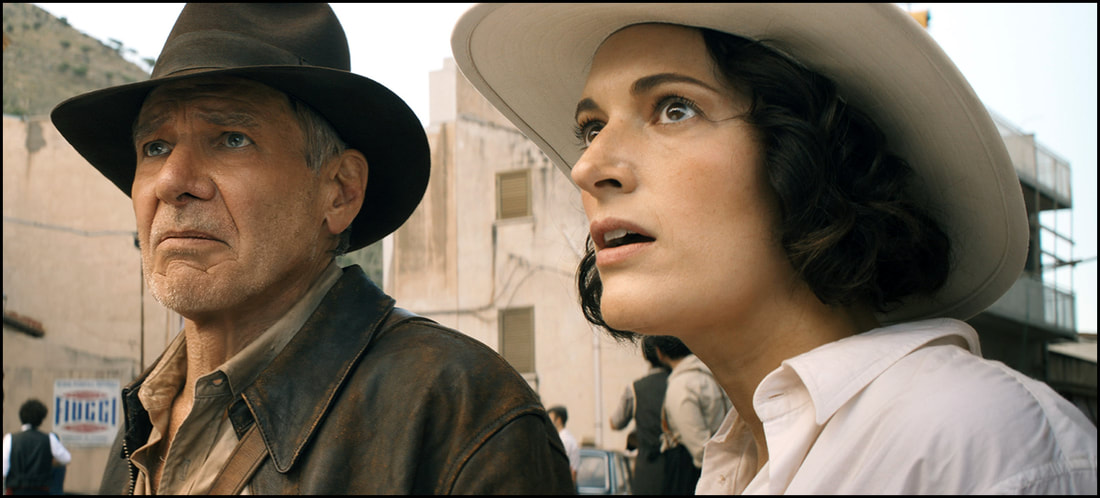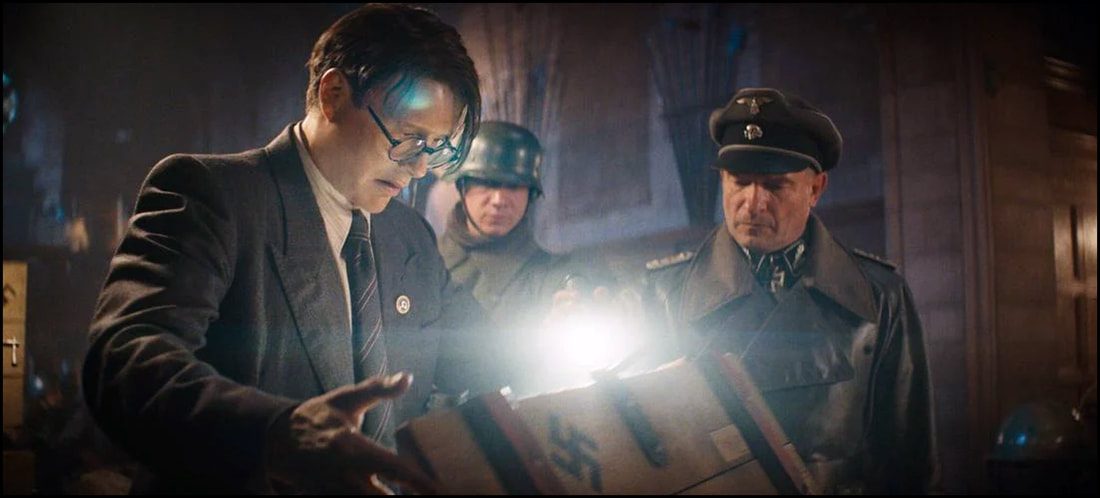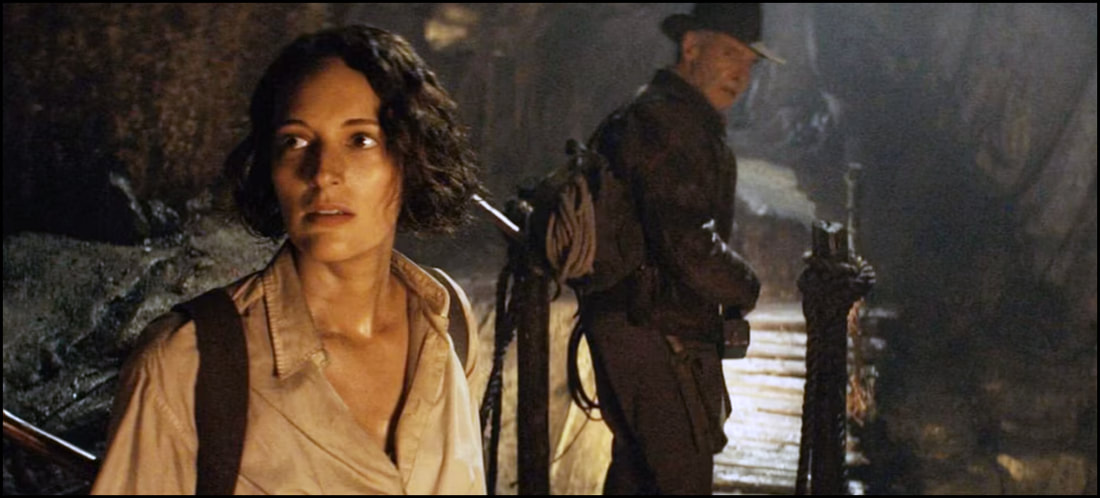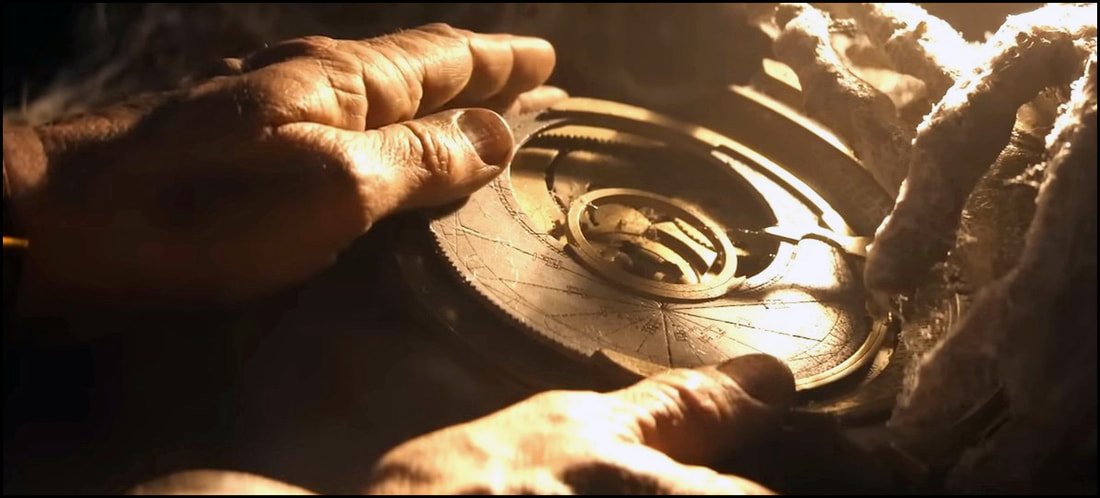That’s the first question I asked when I was a young spud trying to figure out how to write. Dabbling in fiction at a very young age – and even when exercising that habit from time-to-time as an adult – I’d always ask myself that in hopes of shaping up what I thought would be a story worth telling. Every writer does it – whether they admit to it or not – but there’s an even greater underlying question they might not ask out loud yet requires an answer at some point in the process.
“Whose story is this?”
You see, the point-of-view matters in every work of fiction perhaps more than any other single element. Everything – and I do mean everything – descends from that foundation. This doesn’t mean that the narrator is the owner because in many cases authors will use a particular observer to spin a yarn about something or someone else. The main character doesn’t necessarily have to be the proprietor; he or she may have their own narrative arc – some lesson that’s learned and expressed along the way – but if the audience remains unclear about who actually is central to all of the action then there’s likely to be an awful lot of confusion as a result.
“Why is this story necessary?”
Right there. That’s the pay-off. That’s the moral-to-the-story.
Knowing where a tale begins and knowing precisely whose story is being told ties directly to why this story – as designed and delivered – is required viewing of the audience. (Yes, I realize that may sound bossy, but – from a storyteller’s perspective – nothing could be truer.) These elements are woven together in such a way that you really can’t separate them from one another and, ultimately, maintain the adventure’s central view. The big point. The “what’s it all about.”
In the end, nothing should be about spectacle (though Hollywood will disagree) but, instead, s-u-b-s-t-a-n-c-e. If there’s no substance behind the affair, it’ll be shallow. It won’t ring as true. It’ll be one of those puppet shows that tries to import a bit of logic to those watching closely, and they’ll more likely be scratching their heads as a consequence of the confusion, no matter if it’s told at a snail’s crawl or a blistering pace.
Up front, I will say that I think all involved tried to make it a bit more thematically complex than maybe all of the other Indiana Jones flicks have been – what with confronting the action hero’s advanced age front-and-center – and that might just be its biggest problem.
These adventure films have never been about taking things seriously, so introducing a measure of reasoned maturity into the frenetic madness kinda/sorta goes against the whole grain of the aesthetic. Essentially, these are popcorn movies – that delightful strain of entertainment that says ‘leave your brain at the door and witness these thrills … at your own peril!’ This isn’t to say that the script didn’t try to approach the subject with some deftness, but – again – deftness has never been Dr. Jones’ defining characteristic (as played by Harrison Ford). In case you’ve missed it – and I think these screenwriters have – our hero rushes headlong in where angels fear to tread. They could’ve done that and also dealt with age, but instead they delivered something that doesn’t quite make much sense … because it’s never clear whose story this is.
(NOTE: The following review will contain minor spoilers necessary solely for the discussion of plot and/or characters. If you’re the type of reader who prefers a review entirely spoiler-free, then I’d encourage you to skip down to the last few paragraphs for the final assessment. If, however, you’re accepting of a few modest hints at ‘things to come,’ then read on …)
From the film’s IMDB.com page citation:
“Archaeologist Indiana Jones races against time to retrieve a legendary artifact that can change the course of history.”
Sigh.
I’ve often pointed out that these synopses as provided by IMDB.com don’t always accurately reflect what a story is about. (Yes, yes, and yes: I know that this material is supplied to IMDB.com and not necessarily written by the site.) In this case, nothing could be further from the truth – the artifact cannot change the course of history – and it was likely written by a marketing knucklehead who hoped to spark a reader’s interest, to compel him or her to want to see this picture. In point of fact, a nefarious person can employ the powers of the Antikythera Device (aka Archimedes’ Dial) to go back in time, giving the user the opportunity to alter history in some way. But the dial itself? It’s nothing more than a means to an end.
Therein lies a major problem with Dial Of Destiny: it lacks a convincing villain.
Still, Destiny has a problem far greater than just presenting viewers with a baddie to hate.
Stories work (and work best) when there’s clear ownership. Audiences need to know without a doubt who has ownership of a story. This isn’t to say that a cast of characters needs to be limited or even cultural diverse (a current Hollywood trend leaning heavily on representation); it’s simply a statement of fact. In order for anything contained therein to make narrative sense, the fable needs ultimately to be about someone. Yes, others can learn lessons on the way and they often do (especially the villain), but without one central driving person casting the proper light on the proper path along the proper way the narrative risks being nothing more than a loosely connected series of events all wrapped up between the opening and closing credits.
Destiny is a particular mess because – think what you will – it’s never Indiana Jones’ film. And, yes, I say this with full knowledge that his name is in the title!
Now, some who’ve written and/or spoken about the flick have likely tried to sell you a bill of goods about Destiny truly belonging to Helena Shaw (Phoebe Waller-Bridge). Throughout the production of the film, it was heavily rumored (through leaks) that the feature was actually intended to set up a continuation, spin-off, and/or re-imaging of the franchise in which the all-new archaeologist would headline her own series of adventures. In fact, it was heavily discussed online several months ago that a vastly different version of Destiny was test-screened for audiences in which Shaw was alleged digitally inserted into footage from previous Indiana Jones’ films and shown to be somewhat recreating those serials for a new generation of viewers. While director James Mangold and the suits at Walt Disney categorically denied this ever took place, it grew increasingly difficult to take them at their word as more and more whistleblowers emerged telling the same story. Even composer John Williams and Harrison Ford have said on record that they’ve either dramatically re-shot or ‘altered’ the original ending, so I’m more inclined to believe Dr. Jones suffered a tragic ending at Mangold’s or producer Kathleen Kennedy’s hands than anything else. (Mind you: I’ve no dog in the fight, and I’m just stating my opinion.)
However, the difficulty with this being Shaw’s story is that she also never quite emerges as a force to be reckoned with much less a character deserving of our collective sympathies. Shown as manipulative, recklessly impulsive, and downright uncaring, she never connects emotionally with viewers (in my humble opinion), instead serving as a foil to what has long been Jones’ tradition of turning relics over to the stewards of museums so that they can be preserved for the sake of history. Shaw sells them to the highest bidder – for her own personal gain – and never comes to the realization that this is a bad thing, even in the last reel. At each and every opportunity, she both criticizes and (thematically) castrates her male counterparts – including the series’ lead – and never displays even a modest appreciation for the safety of anyone other than herself.
As hard as screenwriters Jez Butterworth, John-Henry Butterworth, David Koepp, and James Mangold worked on this (all of this feels notoriously rewritten), no single player takes center stage consistently for him or her to claim central ownership of the entire affair. Points of view shift here and there, but there’s no single through-line that achieves the appreciation required of an audience to elevate all of this from ‘just a film’ to ‘a film worth admiration.’ Perhaps viewers who’ve gone along with George Lucas, Steven Spielberg, and Harrison Ford from the beginning might feel those pangs of knowing regret when Indy stops to complain about his aches and pains, and – yes – I felt a tug at my heart when the archaeologist talks about his familial relationships falling apart, but those are easy emotional plays and not the kind of thing that makes for required viewing. They could have – if the story had been fully structured to belong to our capable leading man – but they just don’t here, no matter the effort expended.
There’s no doubt in my mind that the producers knew putting “Indiana Jones” in the title was going to guarantee them a reasonable box office draw. But because Destiny never quite becomes Indy’s story – he’s even reduced to the ‘damsel in distress’ more than once in here, requiring assistance from others in order to rebound – I can’t help but suspect that this feature won’t have the legs necessary to make this outing as memorable as anything that’s come before … and that’s the real shame here. For a character that’s already had two previous swan songs – both with vastly happier endings – I think Dr. Jones deserved a better twilight.
And folks?
Believe me when I say that I could say much, much, much more about Destiny as well as the entirety of the ‘Raiders’ series. Like any flick, Destiny has stuff that hints at greatness and stuff that doesn’t. Many in the media have talked already about the strength of the opening set-up – the flashback sequence set during World War II, Ford’s rather obvious de-aging, and whatnot. My problem is that I try not to separate pieces out that often – I try to look at a film as a whole – so I have critical issues with praising A because A is still a part of B (which leads to C, D, E, and F). Parsing chapters and praising them seems academic and, ultimately, more like an attempt to justify what worked versus what didn’t. My point is that the film as a whole just didn’t work, and no amount of a creative piecemeal approach makes me feel any better for Dr. Jones and his companions in the final estimation.
Indiana Jones And The Dial Of Destiny (2023) was produced by Lucasfilm and the Walt Disney Company. The film is currently playing theatrically around the world. As for the technical specifications? While I’m no trained video expert, I thought the sights and sounds contained within were mostly exceptional; there are some obvious CGI effects – along with a degree of green-screenery – that get in the way here and there, but it isn’t awful in any regard.
Recommended.
Harrison Ford gives a good performance in what looks to be the last of his kind with Indiana Jones And The Dial Of Destiny (2023). Though the story as provided is far from perfect, there was enough visual magic to make it worth a single viewing, but like the previous outing – Indiana Jones And The Kingdom Of The Crystal Skull (2008) – I don’t know that I’ll ever pick this one up nor watch it again. While Phoebe Waller-Bridge doesn’t ruin the affair, she certainly doesn’t play a character I’d much care to ever see again … and that’s a huge miscalculation (again, in my humble opinion) for a franchise that’s built on some of the finest screen creations in all of filmdom.
-- EZ





 RSS Feed
RSS Feed